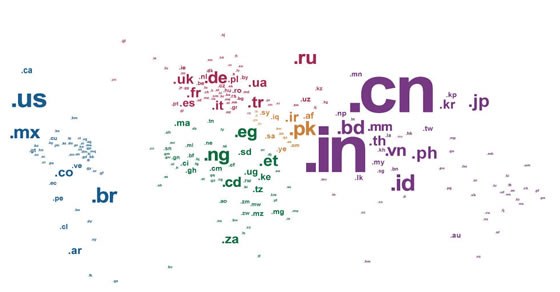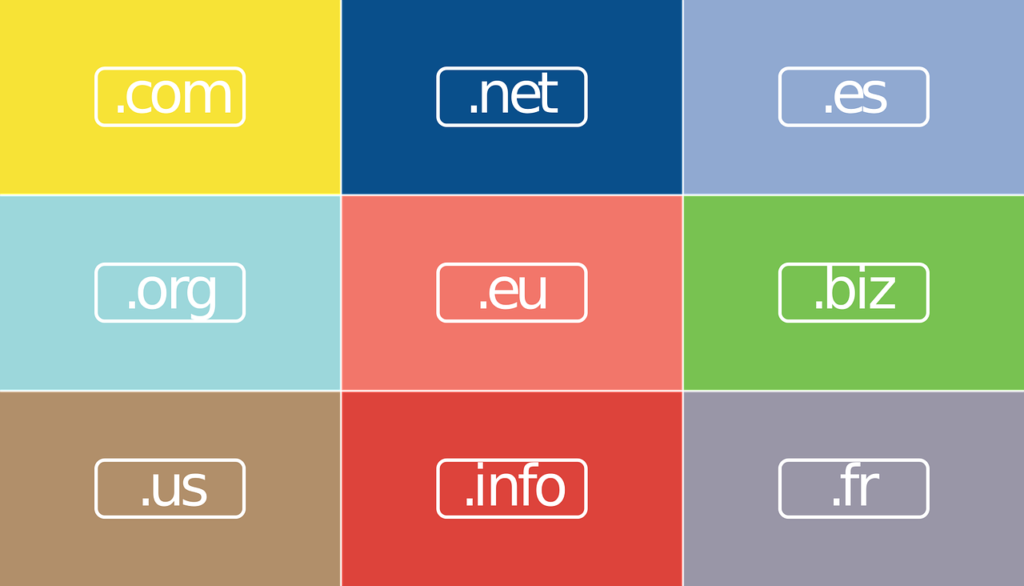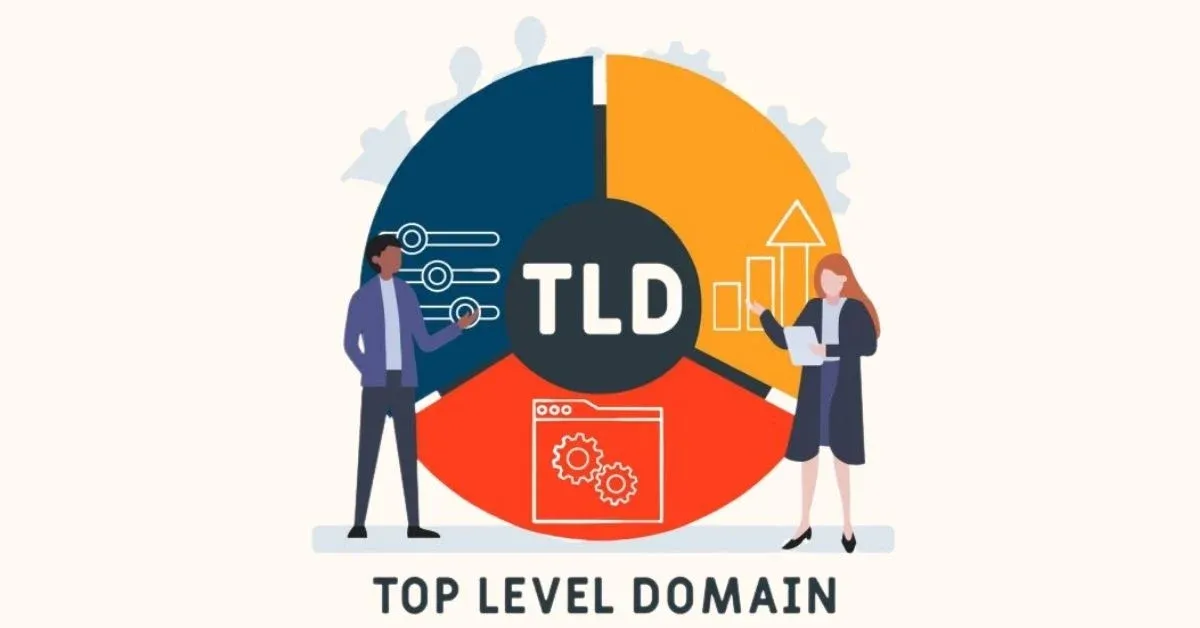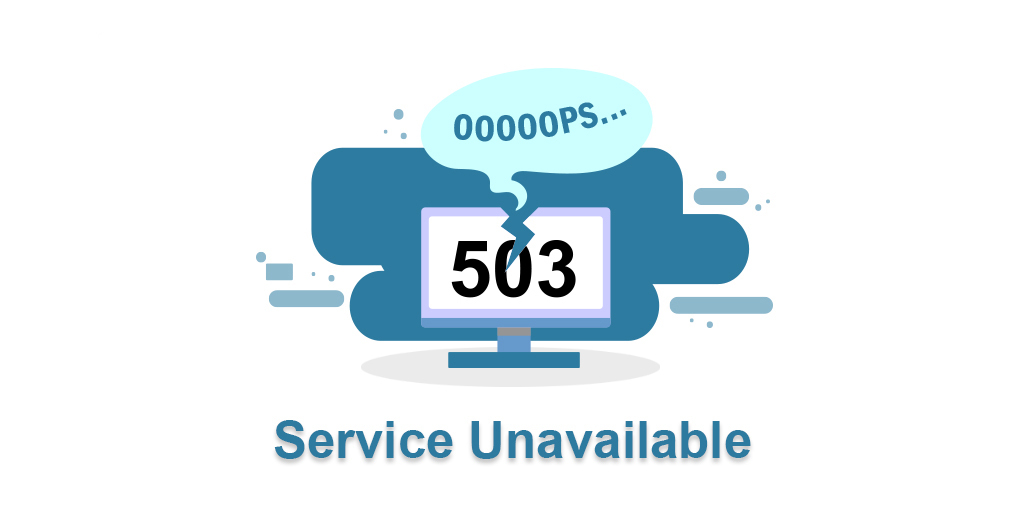When it comes to establishing an online presence for your business, selecting the right Top-Level Domain (TLD) is very important. TLDs are the final element of a domain name, such as .com, .net, or .org. They play a key role in defining your website's identity and can significantly impact your online success.
Introduction to TLDs
Top-Level Domains (TLDs) represent the highest level in the Domain Name System hierarchy. They are the last part of a domain name, following the "dot." TLDs come in various forms, from the popular .com and .net to the more specific .tech or .store. Each TLD has its own unique purpose and can convey different messages to your website visitors.

Importance of Choosing the Best TLD for a Business Website
Selecting the right TLD for your business website is not an easy decision. It's a choice that can have a lasting impact on your brand, online visibility, and credibility. Here are several key reasons why:
Your TLD is often the first thing visitors see. It shapes their initial perception of your website and business. A well-chosen TLD can show professionalism.
The TLD you choose should align with your brand identity and your business. It can reinforce your brand's message and help you stand out amongst the competition.
Certain TLDs, like .com, have a long-established reputation. Opting for such TLDs can lend credibility to your website.
While the TLD itself doesn't directly affect your search engine rankings, it can indirectly impact your SEO. A relevant and memorable TLD can attract more organic traffic.
Specific TLDs, such as country code TLDs like .uk or .ca, can help you target a local audience effectively, making them crucial for businesses with regional focus.
A concise and meaningful TLD can make your web address more memorable to users, increasing the chance of repeat visits.
What is a TLD?
Before going into details of choosing the best TLD for your business website, let's start with the basics.
Definition of TLD
A Top-Level Domain (TLD) is the highest level in the hierarchical Domain Name System (DNS) of the internet. It's essentially the suffix that comes after the "dot" in a web address. TLDs serve to categorize websites and establish their purpose or origin. You're likely already familiar with some of the most common TLDs, such as .com, .org, and .net.
Different Types of TLDs
TLDs come in a wide variety of forms, each designed to serve a specific function or convey a certain message. Here are some of the most common types of TLDs and their characteristics: - Generic TLDs (gTLDs): These are among the most recognizable TLDs and are often associated with general-purpose websites. Examples include .com (commercial), .org (organization), .net (network), and .info (information). They are suitable for a wide range of businesses. - Country Code TLDs (ccTLDs): Country code TLDs are associated with specific countries or territories. They are excellent for businesses targeting a local or regional audience. Examples include .uk (United Kingdom), .ca (Canada), and .au (Australia). - New gTLDs: These include .tech, .store, .app, .blog, and many more. New gTLDs allow for creative and more specific domain names. - Sponsored TLDs (sTLDs): These TLDs are usually managed by a specific community or organization and are intended for a particular niche. Examples include .gov (government), .edu (education), and .mil (military). - Infrastructure TLDs: These TLDs are reserved for internet infrastructure use, and they include .arpa and .root. They are not typically used for general websites. - Brand TLDs: Some businesses and organizations have opted to acquire their own brand TLDs, like .apple or .ibm. These can be used for branding and security purposes.

The Role of TLD in SEO
The impact of Top-Level Domains (TLDs) on Search Engine Optimization (SEO) is an often asked question. Let's explore the relationship between TLDs and SEO.
How TLDs Can Impact SEO
The choice of TLD does not directly influence your website's SEO rankings, as search engines like Google mainly focus on the quality of content, user experience, and other on-page and off-page factors. However, your TLD can indirectly impact your SEO efforts in several ways:
- TLDs like .com, .org, and .net are generally associated with established websites. Users often perceive these TLDs as more credible, which can lead to higher user engagement.
- Using a brand-specific TLD, such as .apple or .ibm, can enhance brand recognition and help users remember your web address.
- Country code TLDs (ccTLDs), such as .uk or .ca, are excellent for businesses targeting a specific geographic region. Search engines may interpret these TLDs as a signal of the site's target audience, potentially improving local search rankings.
- Some new gTLDs, like .tech or .app, can be highly relevant to specific industries or niches.
“Depending on your industry, using an industry-specific TLD could boost your SEO. For example, several start-ups use the TLD of .tech or .io. Other options include using .food for a food blog or .travel for a tour operator. Using an industry-specific TLD tells Google and people what your site is all about, which can help improve your rankings and CTR.” - Neil Patel
Case studies and examples
The Case of Colombia's .CO TLD: - TLD: .co (Colombia's country code TLD) - Case Study: In the early 2010s, .CO was marketed as an alternative to .com. One notable example is the website www.Amazon.co, which Amazon acquired to target the Colombian market. Over time, the website's SEO rankings improved significantly, demonstrating that a ccTLD could be used to enhance local SEO and target specific regions effectively.
Tech Industry and .TECH: - TLD: .tech (a new gTLD) - Case Study: Numerous technology-related startups and companies have adopted the .tech TLD to align with their niche and improve SEO. For instance, www.TechCrunch.tech, a technology news website, uses the .tech TLD, indicating the site's niche.
International Presence with .COM: - TLD: .com (a generic TLD) - Case Study: Major brands like Apple (www.Apple.com) and Google (www.Google.com) opt for .com domains to show their global reach. While their choice of TLD doesn't directly influence their SEO rankings, the credibility of .com domains contribute to their online presence.

Choosing the Best TLD for Your Business Website
Factors to Consider When Choosing a TLD for a Business Website
Nature of Your Business
Consider the nature and industry of your business. Does your TLD need to communicate a specific niche or industry focus? If you're in technology, .tech might be good for you, while .store may suit an e-commerce website.
Geographic Targeting
If your business serves a specific geographic area, consider a country code TLD (ccTLD) like .us or .de. These TLDs can enhance your local SEO efforts and signal your target audience effectively.
Brand Identity
A TLD should align with your brand identity and values. Choose a TLD that showcases your brand message and appeals to your target demographic.
Credibility and Trust
Certain TLDs like .com, .org, and .net have established a reputation. They're often perceived as more trustworthy, which can impact user trust in a positive way.
Keyword Relevance
While not as influential as they once were, keywords in domain names can still be a factor.
Pros and Cons of Common TLDs
.com (Commercial): - Pros: Universally recognized, trustworthy, great for brand visibility. - Cons: Highly competitive, limited availability of short, memorable names.
.org (Organization): - Pros: Perceived as credible and trustworthy for nonprofit organizations. - Cons: Often misunderstood as exclusive to nonprofits, fewer options available.
.net (Network): - Pros: Suitable for tech and networking businesses, trustworthy. - Cons: May be seen as less versatile than .com.
.tech (Technology - New gTLD): - Pros: Ideal for tech-focused businesses, communicates industry focus. - Cons: May not have the same universal recognition as legacy TLDs.
Tips for Selecting the Best TLD
- Understand the advantages and limitations of different TLDs.
- Ensure your chosen TLD aligns with your brand, industry, and target audience.
- Check the availability of your preferred domain name with your chosen TLD.
- Think about how your TLD choice can support your SEO strategy.

Recommendations for TLDs based on Business Type
For E-Commerce and Online Retail: .store
- Why: The .store TLD is perfect for businesses that operate online stores. It communicates the nature of your business to customers, making it easy to remember. Customers immediately understand that they can shop on your site.
For Technology and Tech Startups: .tech
- Why: The .tech TLD is ideal for tech-focused businesses. It communicates your industry niche and showcases your tech-related products or services.
For Creative Agencies and Design Studios: .design
- Why: The .design TLD is tailor-made for creative businesses. It immediately shows your profession and your proficiency in design, making your brand more memorable to potential clients.
For Nonprofit Organizations: .org
- Why: .org is the traditional TLD for nonprofit organizations. It showcases your nonprofit status, shows trust, and tells visitors that your mission is driven by a cause rather than profit.
For Local Businesses and Restaurants: .cityname (e.g., .nyc or .london)
- Why: City-specific TLDs, known as geoTLDs, are fantastic for local businesses. They help with local SEO by clearly indicating your location and targeting the right audience.
For Educational Institutions: .edu
- Why: The .edu TLD is reserved for educational institutions, such as universities and schools.
For Health and Wellness Services: .health
- Why: The .health TLD is an excellent choice for businesses in the health and wellness industry. It communicates your focus on well-being and health-related services.
For Personal Blogs and Portfolios: .name
- Why: The .name TLD is ideal for personal branding. It allows individuals to use their own names in the domain, making it great for personal blogs, portfolios, and personal branding websites.
Conclusion
In conclusion, the choice of a top-level domain (TLD) for your business website plays a role in establishing your online identity and future visibility. While traditional TLDs like .com are widely recognized, newer options provide more opportunities for branding. Your focus should be delivering valuable content, seamless user experience, and optimizing your website for search engines.
Unlocking the potential of your business website does not depend entirely on your TLD choice but also in the holistic approach to online presence. Embrace a TLD that aligns with your brand and purpose, but prioritize quality content, user engagement, and SEO strategies.
Our personal recommendation? Aim for a TLD that reflects your brand identity while keeping user accessibility in mind. Leverage the potential of your chosen TLD along with a good website experience and top-notch content.
What is a TLD, and why is it important for my business website?
A TLD, or Top-Level Domain, is the last part of a domain name (e.g., .com, .net). It defines your website's identity and purpose. Choosing the right TLD is essential because it influences user trust, branding, and can indirectly impact SEO.
Is .com the best TLD for my business website?
.com is a popular and trusted choice, but the best TLD depends on your business. Consider .tech for tech companies, .store for e-commerce, or local ccTLDs for specific regions.
Do TLDs affect SEO rankings directly?
TLDs don't directly impact SEO rankings, but they can influence user engagement, local SEO, and industry relevance, indirectly affecting your website's search engine visibility.
What's the difference between gTLDs and ccTLDs?
gTLDs (generic TLDs) like .com are versatile and global. ccTLDs (country code TLDs) like .uk are country-specific and ideal for local targeting.

Nadejda Milanova
An experienced Content creator in the field of Search Engine Optimization (SEO) and WordPress. A true proffesional with a Master's degree focused on journalism.
Read more by Nadejda Milanova





